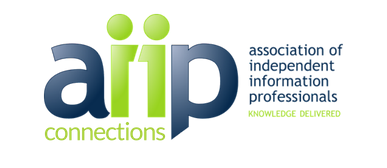Documenting Your Business

By Liz Fraley
First, let me state that I’m not an accountant, lawyer, financial advisor, or security professional. I’m a writing professional. I document things for a living. Writing professionals write product manuals, dosage guidelines, installation instructions, grant applications, maintenance procedures, proposals, and so much more. Wherever there’s information designed to inform and instruct, you’ll find a writing professional like me embedded in the process.
If you died, would anyone know what to do with your business? Which clients to notify? How to contact your active clients? How to shut down automated processes? Where to find the passwords to the many, many services that support your business? (Let’s set aside the complexities that two-factor authentication adds to the mix.)
I’m not saying that the person you trust to handle things isn’t smart. They’re just not embedded in the work you love enough to do every day. They don’t know anything about the routine things that you think are easy to figure out–but that aren’t to someone who has no idea what they’re looking at.
A few years ago, I saw a video of Andrew Kalat’s presentation Online, No One Knows You’re Dead. Recovering and unearthing even basic operating information was very difficult. When I think about how many businesses I interact with, where I or my business is the client, and the number of new services I try out all the time, I’m overwhelmed. How can I expect anyone cleaning up after me to be anything less?
Luckily, I can turn to my training as a writing professional to help! There’s a well-known technical writing exercise: How do you teach a Martian to make a sandwich. How do you explain things so that someone who has no context, background, or experience can learn how to make one? When it comes to our business, we’ve embedded a lot of ourselves, molding tools and processes to fit our comfort and productivity. No one else is in our heads but we can turn our skills on ourselves so the cobbler’s kids have good shoes, too.
Take a moment and think about key information that you want to share or that is critical to your business and your life. Document everything, especially those things that are part of your digital footprint. This information is more important than the rare, periodic tasks to the person you want shutting down (and stopping payment for) services that you’re no longer using.
While it may seem dark to think in these terms, all of this helps you today too. Want to pass work to a new hire? Documentation helps them pick up and get started right away! Want to swap one service for another? Again, easy! What you did, why you set it up this way, where the moving pieces are–it’s all documented!
I’ll close with a few places to start. First, get a password manager and make sure someone else has access or knows how to get into it. Because if Apple wouldn’t open an iPhone for the Feds, it’s very unlikely that they’ll open it for your successor. The last thing you want is to add stress and work to someone who’s already in a stressful situation.
Next, try filling out Mike Vardy’s 1Password Emergency Kit. His form will help organize your next steps. Then take an hour to watch Andrew Kalat’s presentation. You’ll never be the same.
Liz Fraley, Single-Sourcing Solutions, has founded two companies, sits on the boards of three non-profits, and is constantly coming up with new ways to share knowledge in the technical communications and content industries.





